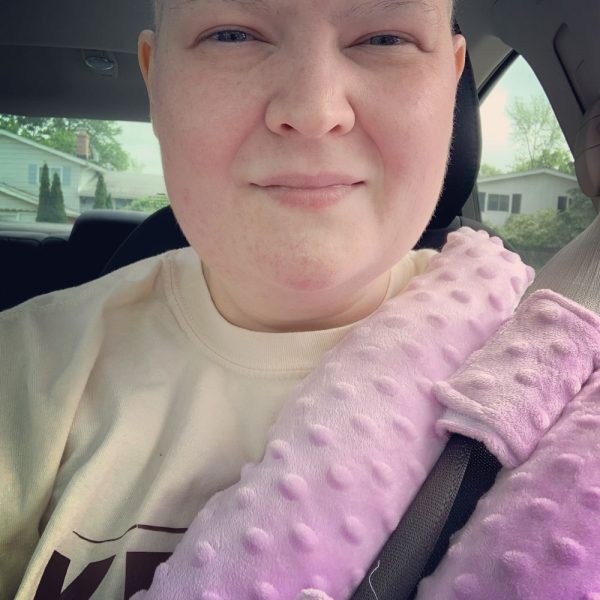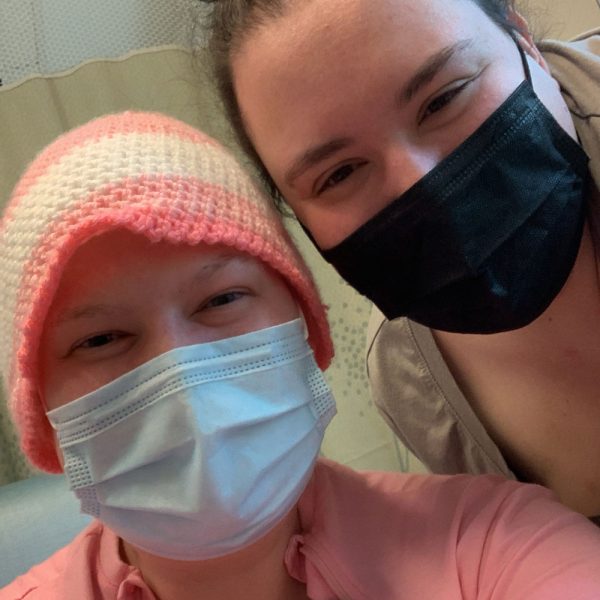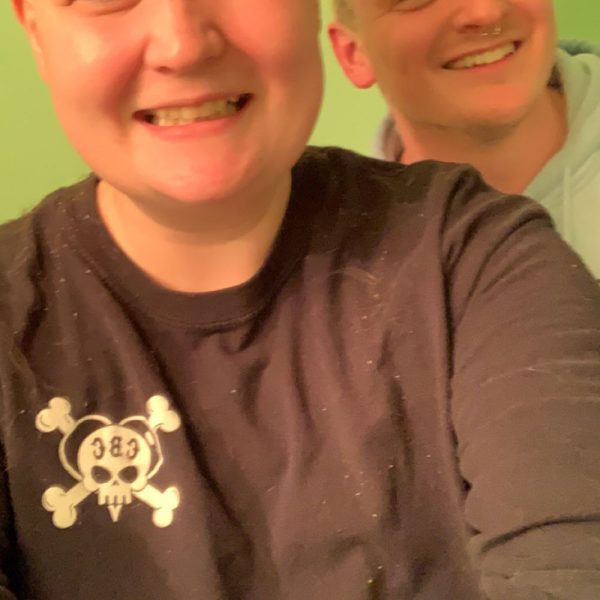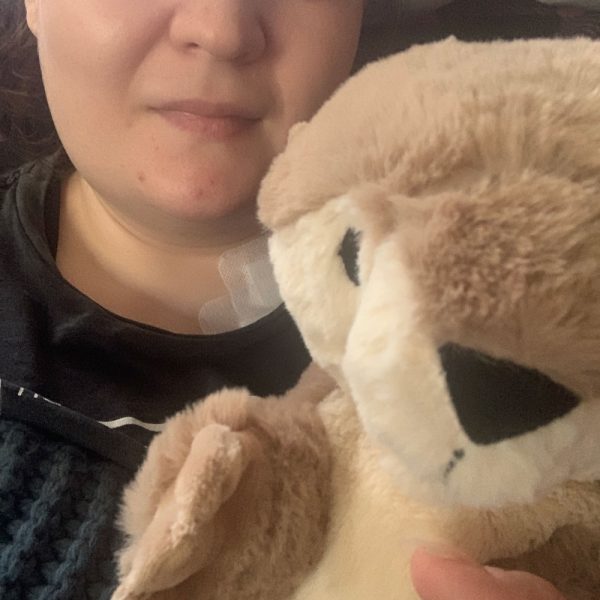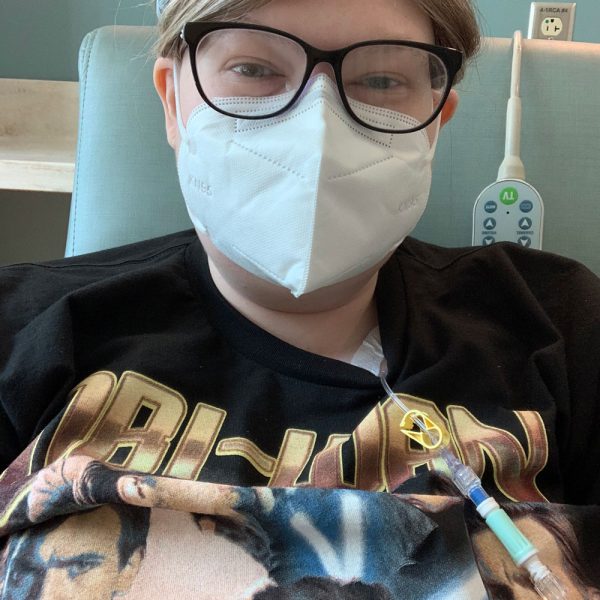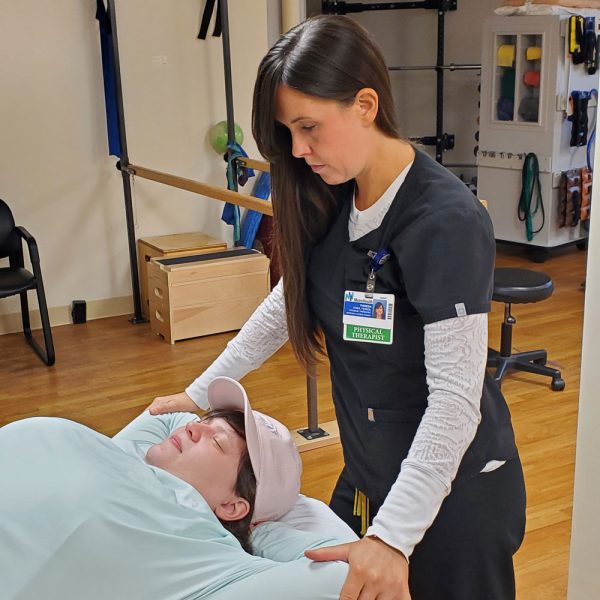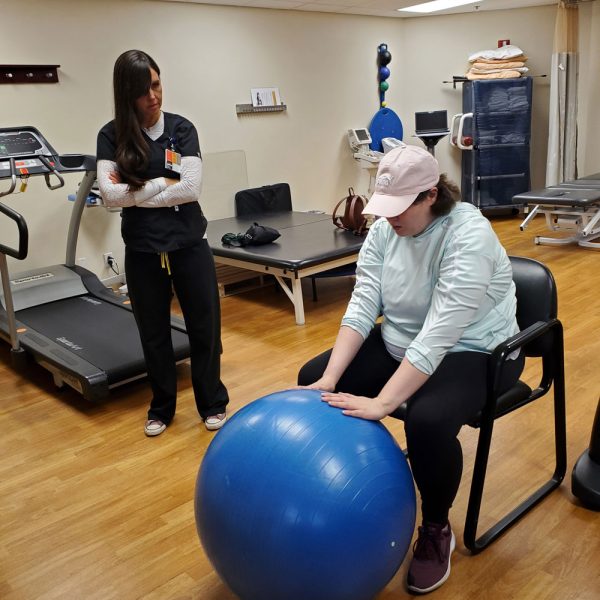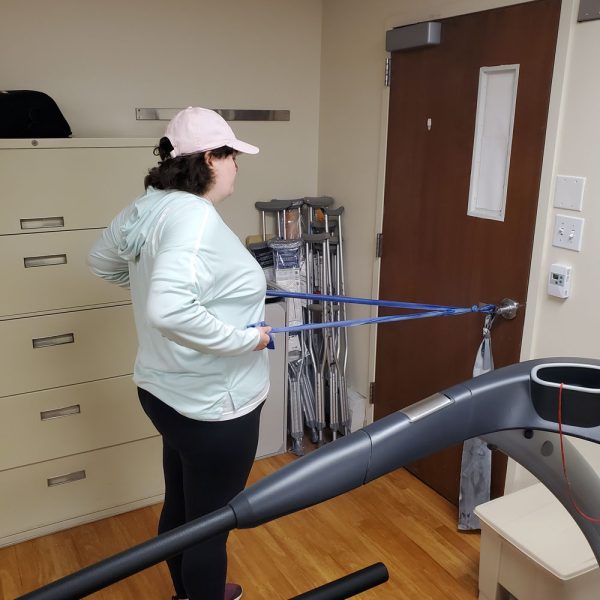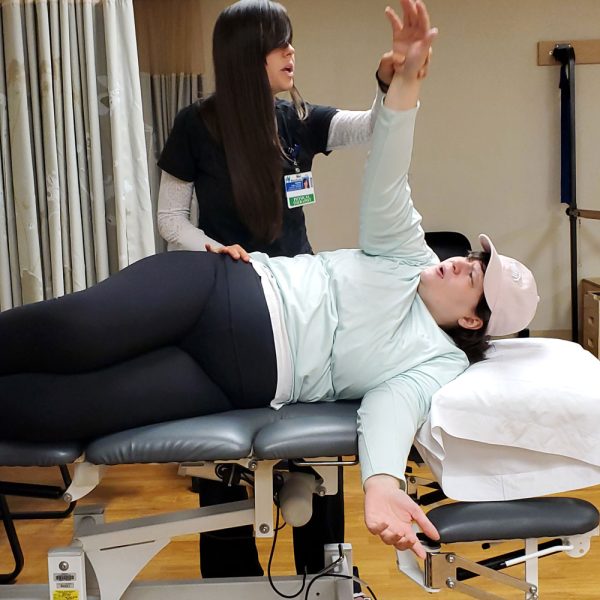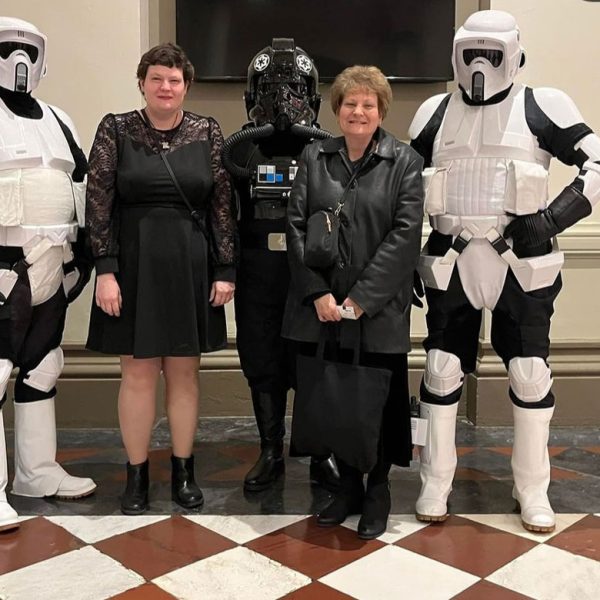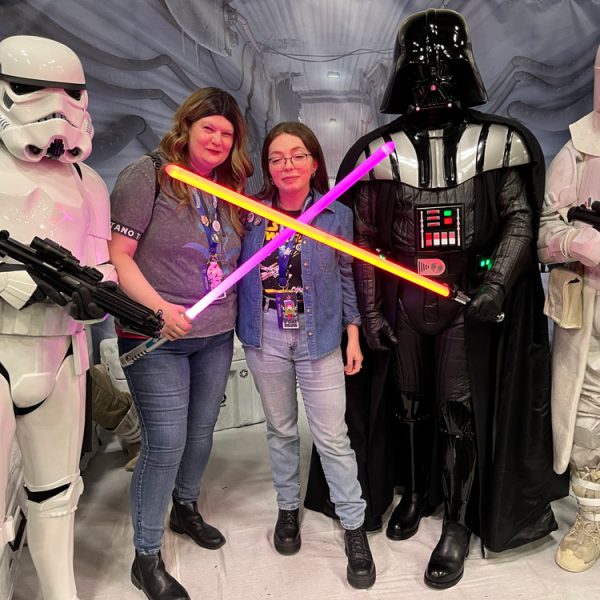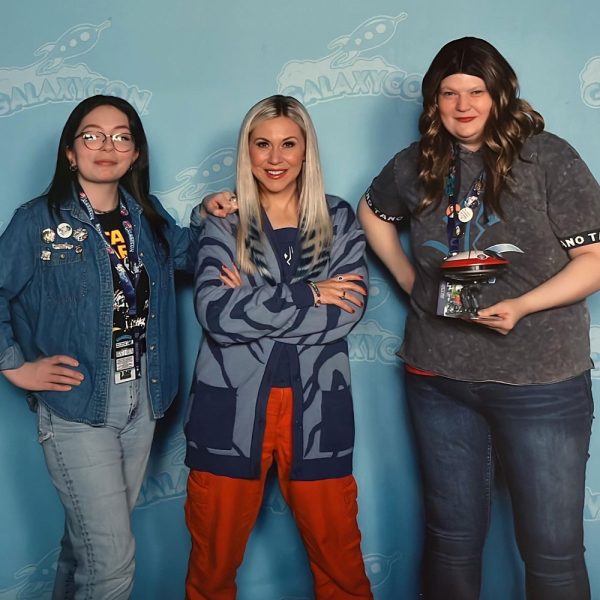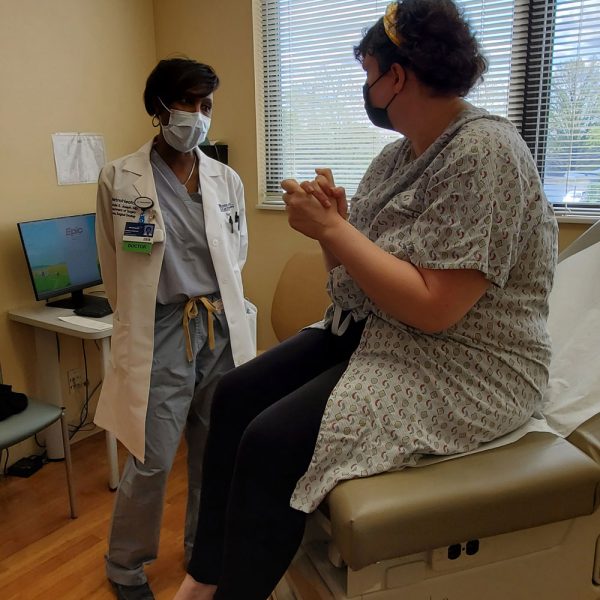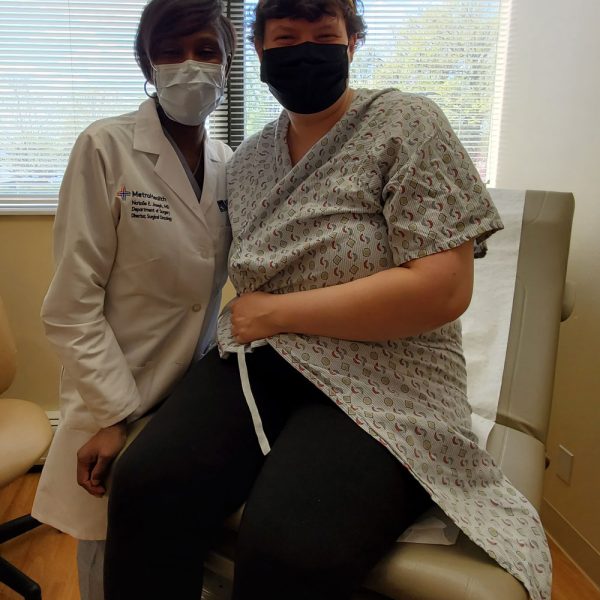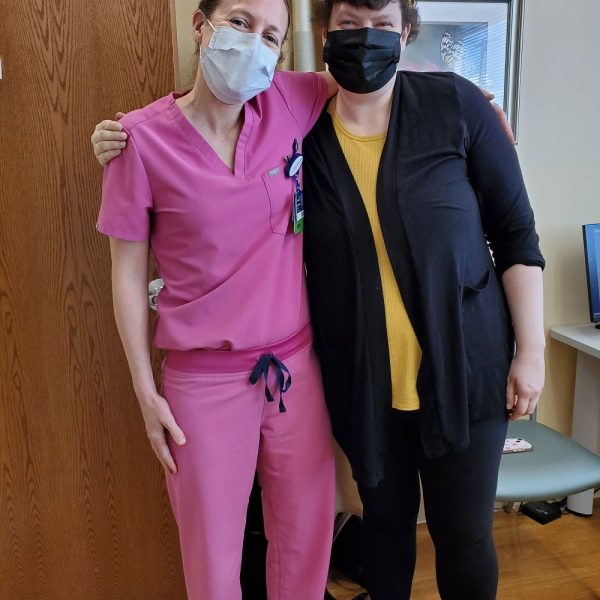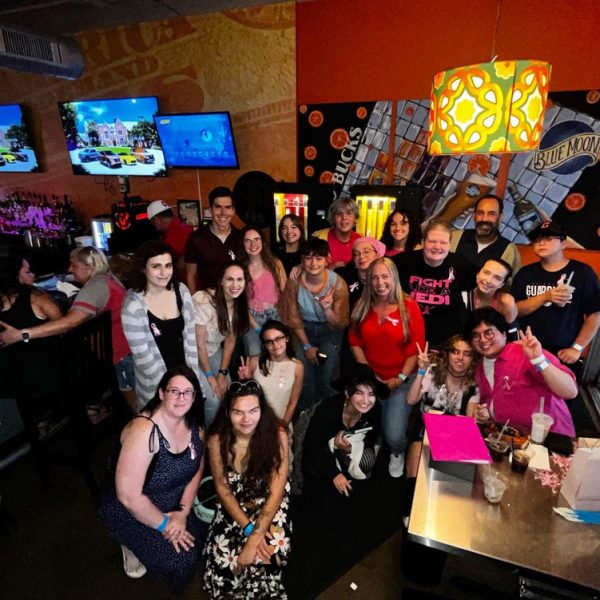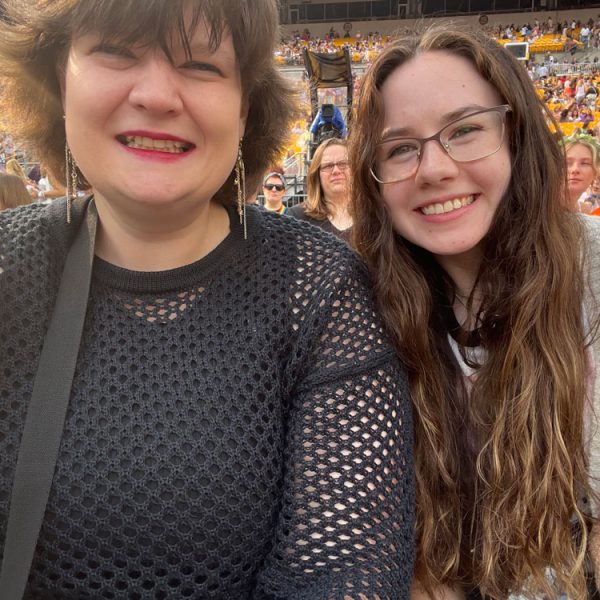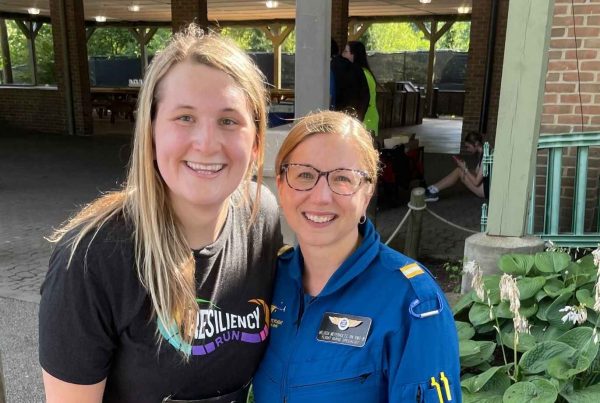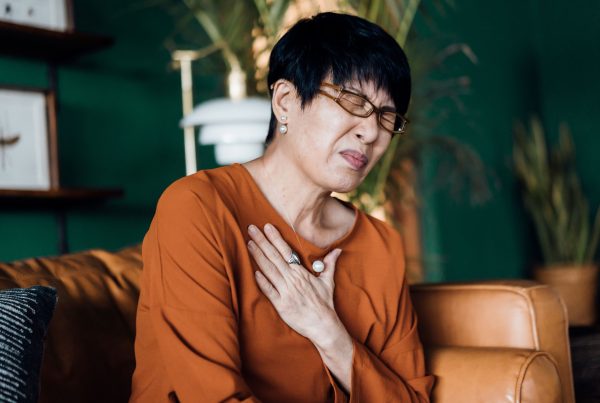In late 2021, Eva discovered a lump in her right breast. She was just 28. With the support of MetroHealth’s caregivers, Eva found the inspiration to fight.
Eva was given the option of freezing her eggs to preserve her fertility, but she didn’t want to delay treatment by weeks or even months. Because she had a more aggressive subtype, Her2-positive, which tends to grow faster and come back, Eva was advised to start chemotherapy first.
When she had the energy, Eva picked up a few shifts at Starbucks as a barista. She considered her coworkers like family. “I had to cut back at work, which was very rough. They’ve been wonderful, they accommodate me with whatever I need.”
Chemo began on March 4, 2022. The side effects sometimes landed her in the Emergency Department. A weakened immune system stopped her from hanging out with friends. “The hardest thing was slowing myself down,” she says.
Eva finished chemotherapy on June 21. On July 20, 2022, she underwent a partial mastectomy and a sentinel lymph node biopsy. On August 2, two days before her 29th birthday, Eva’s follow-up appointment with surgeon Natalie Joseph, MD, brought good news: The cancer was Stage 1 –; it hadn’t spread beyond the breast and lymph nodes.
A few weeks later, Eva began physical therapy designed specifically for women who have undergone breast cancer surgery. She needed to improve her upper body strength and range of motion in her right arm. Both had been impacted by lymphedema that developed when lymph nodes were removed during surgery.
In March 2023, halfway through a second round of chemotherapy, Eva thought she felt a new lump in the same breast. This time, she made an appointment right away. Thankfully, the test results showed no signs of cancer and was likely just scar tissue. “Everything looks good. Now the focus is about trying to get back to normal, as much as possible,” Dr. Joseph said during a follow-up visit in May.
Today, Eva is done with chemotherapy. She is under “active surveillance” for the next five years, meaning regular mammograms and follow-up with her physicians every three to six months. Every month she gets a shot of Zoladex, a medication used to treat breast cancer in premenopausal women. She sees her oncologist every three months.
Through sharing her journey, Eva wants to help other young women diagnosed with breast cancer. She wants them to continue to have hope. “Know that there’s help for you,” she says. “There are so many resources out there.”
Up next for Eva:
“I can’t thank MetroHealth enough for taking such good care of me.”


